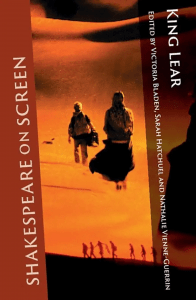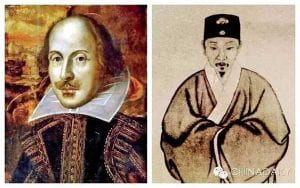 Global Shakespeare can be studied through two interrelated concepts: performance as an act of citation and the ethics of citation. Appropriating the classics carries strong ethical implications. A crucial, ethical component of appropriation is one’s willingness to listen to and be subjected to the demands of others. These metaphorical citations create moments of self and mutual recognition. Seeing the others within is the first step toward seeing oneself in others’ eyes. The act of citation is founded upon the premise of one’s subjectivity, the subject who speaks, and the other’s voice that one is channeling, misrepresenting, or appropriating. ...continue reading "Ethics of Performative Citations of Shakespeare"
Global Shakespeare can be studied through two interrelated concepts: performance as an act of citation and the ethics of citation. Appropriating the classics carries strong ethical implications. A crucial, ethical component of appropriation is one’s willingness to listen to and be subjected to the demands of others. These metaphorical citations create moments of self and mutual recognition. Seeing the others within is the first step toward seeing oneself in others’ eyes. The act of citation is founded upon the premise of one’s subjectivity, the subject who speaks, and the other’s voice that one is channeling, misrepresenting, or appropriating. ...continue reading "Ethics of Performative Citations of Shakespeare"
Month: November 2019
Teaching King Lear in a Global Context
 How might we engage with the "essence" of King Lear, or "Learness," in a networked culture? Juxtaposing the clips of the division-of-the-kingdom scene from different films allows us to reexamine our perceived ethical burden to explain Lear’s problems away. The scene in Peter Brook’s 1971 film is dominated by close-ups of Lear and other characters, framing Paul Scofield’s Lear as a solemn statue. Peter Brook’s 1962 RSC production and subsequent 1971 film of King Lear engages with the theme of ecocriticism through an apocalyptic mise-en-scène.
How might we engage with the "essence" of King Lear, or "Learness," in a networked culture? Juxtaposing the clips of the division-of-the-kingdom scene from different films allows us to reexamine our perceived ethical burden to explain Lear’s problems away. The scene in Peter Brook’s 1971 film is dominated by close-ups of Lear and other characters, framing Paul Scofield’s Lear as a solemn statue. Peter Brook’s 1962 RSC production and subsequent 1971 film of King Lear engages with the theme of ecocriticism through an apocalyptic mise-en-scène.
In contrast to Laurence Olivier’s Lear in Elliott’s 1983 film, who laughs off Cordelia’s initial response, Scofield’s Lear speaks methodically and remains stern throughout the scene, which ends with him calmly banishing Cordelia. Cordelia’s aside is cut, thereby diminishing the weight of a potentially revelatory moment as well as Cordelia’s self-discovery.
...continue reading "Teaching King Lear in a Global Context"
Performing Commemoration: The Cultural Politics of Locating Tang Xianzu and Shakespeare
 Cultural memory is actively constructed through embodied and political performances. Tang Xianzu and William Shakespeare, two “national poets” of unequal global stature, have recently become vehicles for British and Chinese cultural diplomacy and exchange during their quatercentenary in 2016. The culture of commemoration is a key factor in Tang’s and Shakespeare’s positions within world theatre. Performances of commemoration take a wide range of approaches from grass-root events to government-sponsored festivals. With a comparative scope that explores the afterlives of the two dramatists, this cluster of essays examines commemorative practices, the dynamics of artistic fame, comparability of different dramatic traditions, and transformations of performance styles in socio-historical contexts. ...continue reading "Performing Commemoration: The Cultural Politics of Locating Tang Xianzu and Shakespeare"
Cultural memory is actively constructed through embodied and political performances. Tang Xianzu and William Shakespeare, two “national poets” of unequal global stature, have recently become vehicles for British and Chinese cultural diplomacy and exchange during their quatercentenary in 2016. The culture of commemoration is a key factor in Tang’s and Shakespeare’s positions within world theatre. Performances of commemoration take a wide range of approaches from grass-root events to government-sponsored festivals. With a comparative scope that explores the afterlives of the two dramatists, this cluster of essays examines commemorative practices, the dynamics of artistic fame, comparability of different dramatic traditions, and transformations of performance styles in socio-historical contexts. ...continue reading "Performing Commemoration: The Cultural Politics of Locating Tang Xianzu and Shakespeare"
